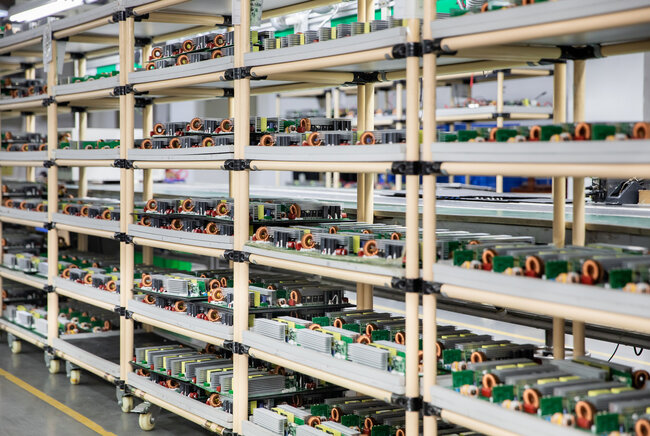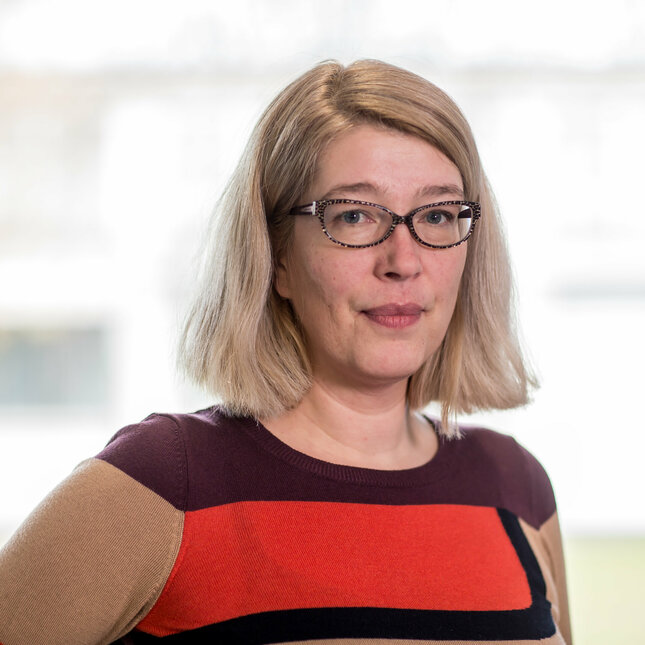Research project RENÉE aims to transform manufacturing with circular economy principles
TU/e scientists Sonja Rispens, Pascale Le Blanc, Evangelia Demerouti and Ruohan Zhang focus on upskilling and reskilling the workforce for the partnering manufacturing industries

The European research project named RENÉE (Flexible REmanufacturing using AI and advaNced robotics for circular valuE chains in Eu industry), led by the University of Patras in Greece, aims to guide this strategy. TU/e researchers Sonja Rispens, Pascale Le Blanc, Evangelia Demerouti, and Ruohan Zhang lead an important task in the project, as the key factor in determining the of newly developed technology will be user acceptance. They focus on the workforce: What is necessary for seamless collaboration between employees and robotic/AI systems; which new skills are required to collaborate with these systems and how can employees (e.g. operators, engineers) be trained to lead the change?
Remanufacturing
Remanufacturing involves retaining the usefulness of products and components, thereby reducing the need for raw materials and energy consumption. It offers benefits such as lower prices, shorter lead times, and enhanced sustainability. However, several barriers hinder its widespread adoption, including issues related to competitiveness, core product quality, regulations, workforce training, and cross-sectoral research.
Upskilling and reskilling
The project encompasses four main pillars: circular value chains, robot skills and flexible production, digital infrastructure, and workforce upskilling. Each pillar addresses specific challenges related to remanufacturing processes, incorporating technologies such as AI, robotics, and digitalization.
RENÉE aims to overcome these barriers by integrating advanced technologies and innovative strategies. The team of TU/e researchers focuses on upskilling and reskilling the workforce for remanufacturing. Their objectives include evaluating occupational health and safety implications of human-robot collaborative solutions, identifying interventions for human-centric design of remanufacturing work processes, and developing employee skills through providing education platforms and training materials.

Sonja Rispens: "It is really exciting to be part of this project and to be able to expand our research on optimizing human-robot collaboration in actual manufacturing processes. Collaborating with, among others, technology designers and the four use case organizations, broadens our work and organizational psychological perspective on the employees involved in the optimization of the remanufacturing process. And vice versa, it offers a great opportunity to inform all partners, of the vital importance of employee-centric designs."
Key industrial sectors
RENÉE targets key industrial sectors like e-mobility, electronics, robotics, and bicycles, aiming to implement scalable remanufacturing approaches. By redesigning products and implementing Artificial Intelligence and advanced robotics strategies, the project seeks to optimize processes and make them economically viable at the factory level.
Circular economy
Moreover, RENÉE aligns with European goals of promoting a circular economy and reducing CO2 emissions. By extending the lifespan of components and products, remanufacturing contributes to sustainability efforts and helps transition towards a climate-neutral economy.
The project's wider impact extends to promoting cleaner mobility, empowering companies to act in the green and digital transition, and fostering a more resilient, inclusive, and democratic European society. Through innovative technologies, such as robotics and AI, RENÉE aims to accelerate the transition to a more sustainable and human-centered remanufacturing process
RENEE is funded by the European Commission. More information